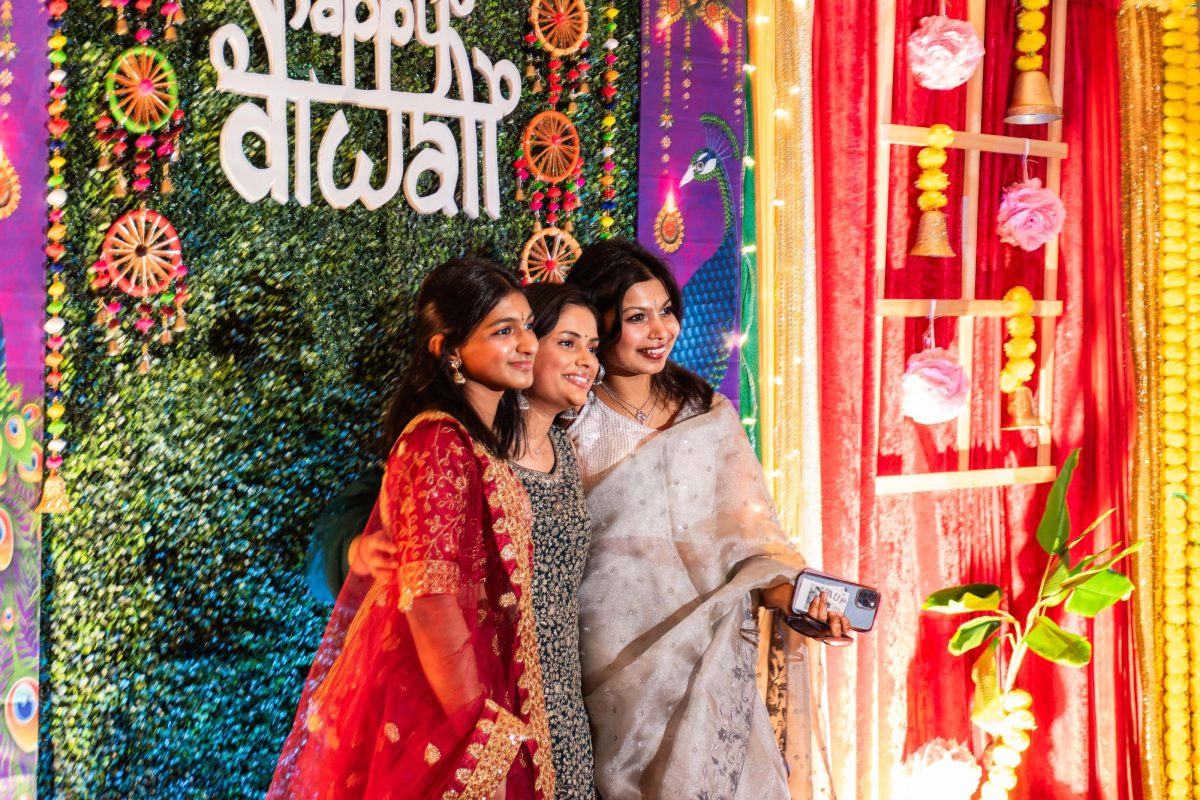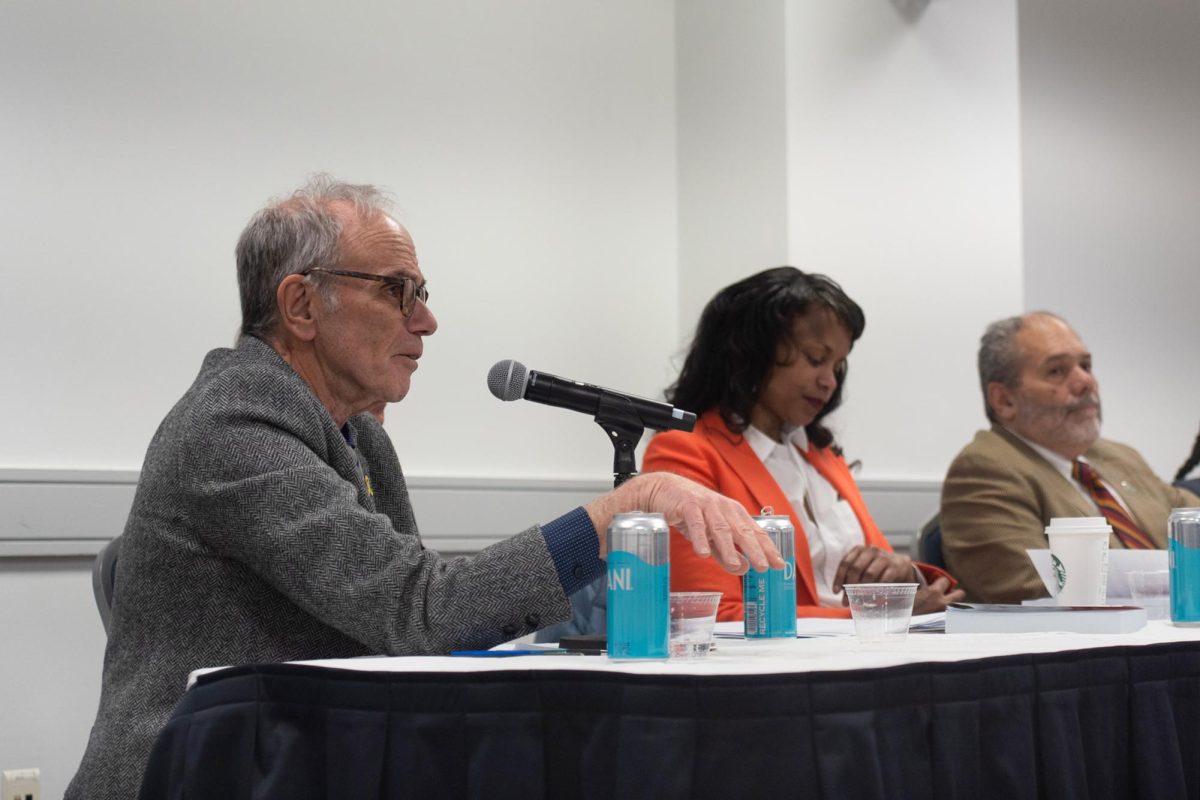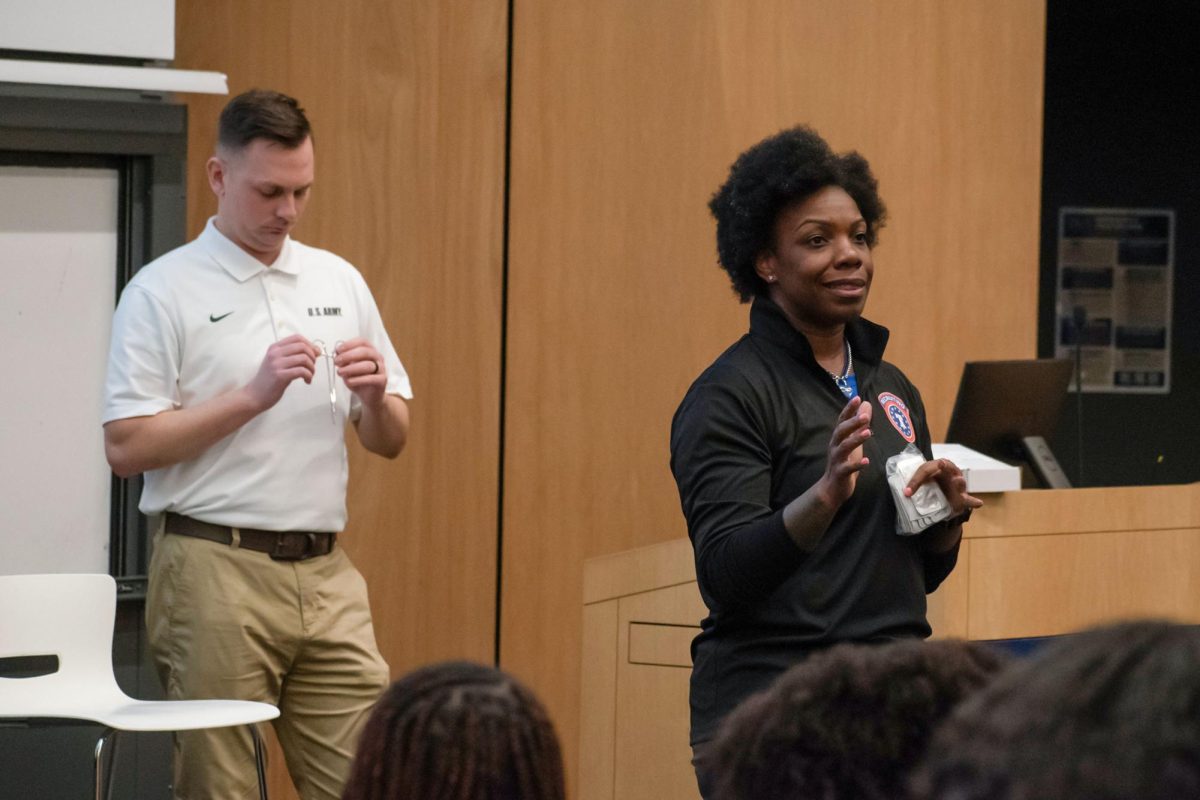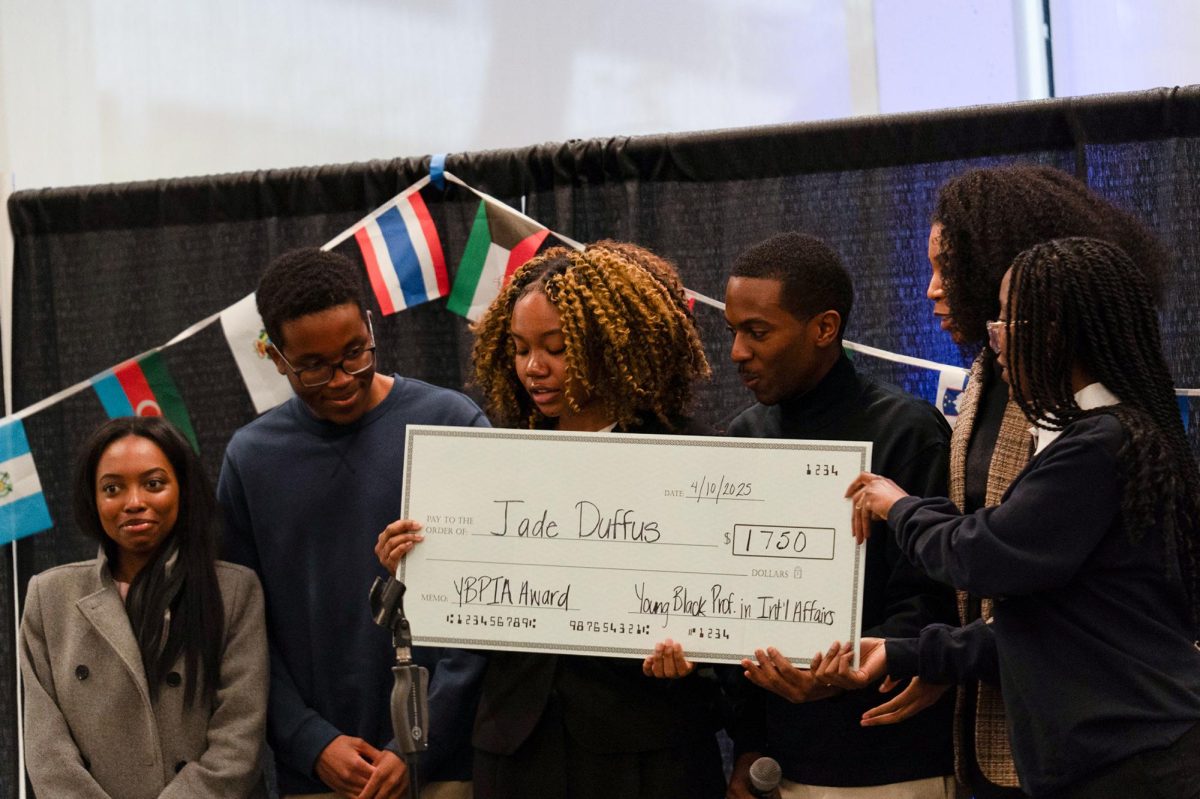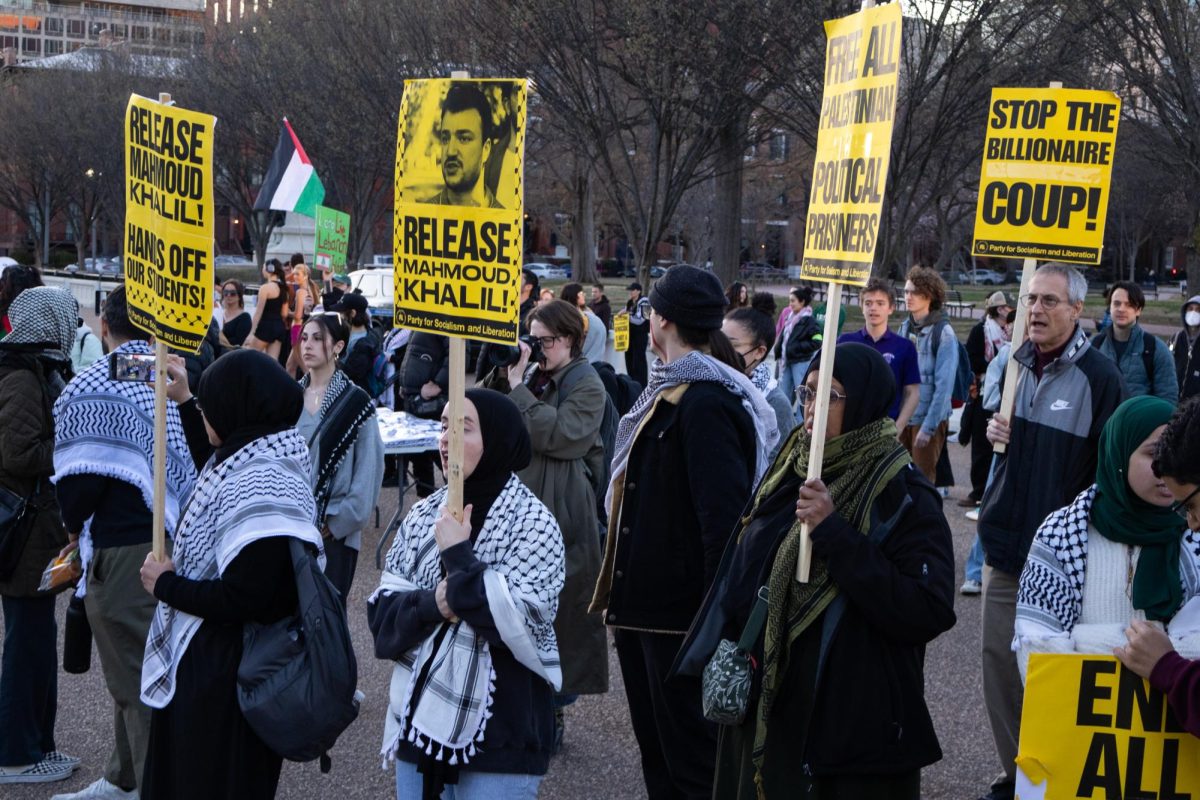More than 100 community members brought the light of Diwali to the University Student Center Friday, with a night of festive performances, prayer and feasts.
Diwali — a five-day celebration derived from the word “Deepavali,” which means “a row of lights” — is one of the largest festivals in India, usually falling in late October and early November based on the Hindu Lunar calendar. Leaders of the Hindu Students Association and Indian Students’ Association said they wanted to bring Diwali to GW to foster community around the celebration — which traditionally involves fireworks, food and prayer — and encourage the University to continue to fund events like these to spread cultural awareness on campus.
Dhvani Modi, a junior and the president of HSA, said Diwali offers an opportunity to bring South Asian culture to GW as a predominantly white institution, which is important for community members who might not be able to return home to India to celebrate the tradition.
“For me, it’s something that brings us together as a culture. It’s one of our biggest celebrations in Hinduism, and it’s also celebrated widely in Indian culture as well,” Modi said. “I think it’s something we can use to bring us together, spread our culture.”
Attendees donning traditional South Asian garments like sarees, lehengas and kurtas graced the floor, mingling until the event fully began before commencing with a prayer and giving thanks.
Aryan Kumar, a senior and the co-president of ISA said the prayer, known as Arti, is a ceremony greeting and giving thanks to God and celebrates the triumph of good over evil of the Hindu Goddess Durga Maa.
“Our plan was to start with Arti because first we want to pray to God before we, it’s like giving our thanks before we go into anything else throughout the night,” Kumar said.
Organizers placed a platter with a flame in the center of the student center, which Modi said participants use in prayer as a method to “serenade the Gods.”
Following the prayer, members from GW Garmi, a competitive Bollywood fusion dance team, and GW Chamak, a multicultural fusion dance team, performed traditional Indian dances.
After the two performances, HSA and ISA members collaborated to present guests with a variety of cultural cuisines. From the classic South Asian staple dish of samosas to others such as paneer curry and gobi manchurian, the multitude of different dishes from across the Indian subcontinent was heartily enjoyed by all those in attendance.
After the feast, dancers dressed in cultural attire engaged the crowd in performances to traditional Indian songs.
Anirudh Prasanna, the first-year representative for ISA, said Diwali is primarily a dharmic tradition — consisting of beliefs of Hinduism, Buddhism, Jainism and Sikhism — celebrating the triumph of good versus evil. He said the “festival of lights” not only involves lighting candles and setting off fireworks but making offerings to the gods, or pujas, and celebrating with loved ones by dressing up and enjoying traditional cuisines.
“The fact that we were able to celebrate Diwali and other traditional celebrations, like we do right now means a whole lot to me,” he said.
He said he was worried he wouldn’t find people similar to him in sharing Hindu beliefs when coming to GW but was reassured in the community he ultimately found.
“Once I found a community that was not only accepting of my beliefs, but also a community of people that had the same beliefs as me. I was not only reassured, but I enjoyed being on campus,” Prasanna said.
First-year Rhea Sharma said she decided to attend the event to connect with the Hindu and Indian community on campus to discuss their backgrounds and their experiences at GW.
“I hope that other Indian students get to find a similar community like I have. I found a lot of friends through the ISA and the HSA and events held here, cultural events, so I hope other students also get to experience this,” Sharma said.
Ankita Saxena, a first-year student who attended the celebration, said growing up in the United States, she hasn’t had an opportunity to “reconnect” with her South Asian roots. She said the Diwali show was a way to deepen ties with her roots and it was “nice” to see the GW community celebrate her culture.
“I’m just happy to see everyone here, not just Indians, but everyone come together and celebrate Diwali, and just, it’s special to see that,” Saxena said.


